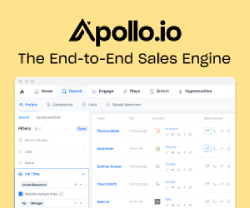GitLab.com is a powerful, web-based DevOps lifecycle tool that provides a complete CI/CD (Continuous Integration/Continuous Delivery) solution to help developers, teams, and enterprises build, test, and deploy software faster and more efficiently. Founded in 2011 by Dmitriy Zaporozhets and Valery Sizov, GitLab has grown into one of the most widely adopted DevOps platforms in the world. Unlike other tools that focus on specific stages of software development, GitLab offers an all-in-one platform that covers every step of the software development lifecycle, from planning and source code management to monitoring and security.
All-in-One DevOps Platform
What sets GitLab apart is its unified approach. Instead of relying on multiple third-party tools for different parts of the software lifecycle (such as Jira for planning, Jenkins for CI/CD, or Docker for containers), GitLab brings these functions into a single application. This simplifies the DevOps process, reduces toolchain sprawl, and minimizes integration headaches.
With GitLab, users can:
-
Plan projects with built-in issue tracking, agile boards, and roadmaps
-
Manage repositories with Git-based version control
-
Collaborate through merge requests, code reviews, and discussions
-
Build and test code using robust CI/CD pipelines
-
Deploy to various environments with automation and rollback features
-
Monitor system performance and track incidents
-
Secure applications with integrated scanning and compliance tools
Git-Based Source Code Management
At its core, GitLab is a Git repository manager with web interface features such as access control, branch management, and commit tracking. Developers can create and manage private or public repositories, clone code, and work on branches collaboratively. Merge requests (similar to pull requests in GitHub) are central to GitLab’s workflow, allowing developers to propose changes, request reviews, and merge code seamlessly into the main branch.
Built-in CI/CD Pipelines
One of GitLab’s standout features is its integrated CI/CD pipelines, which automate the build, test, and deployment process. With a simple .gitlab-ci.yml file, developers define pipeline stages and jobs that run automatically when code is pushed to the repository. This reduces manual work, increases testing consistency, and helps detect issues early in the development cycle.
GitLab Runners—lightweight agents that execute jobs—can be hosted by GitLab or self-managed. This flexibility enables both individuals and large enterprises to scale their CI/CD operations according to their needs.
Security and Compliance
GitLab places a strong emphasis on DevSecOps by integrating security scanning into the CI/CD workflow. The platform offers tools such as:
-
Static Application Security Testing (SAST)
-
Dynamic Application Security Testing (DAST)
-
Container scanning
-
Dependency scanning
-
License compliance checking
These tools automatically scan for vulnerabilities, outdated libraries, and licensing issues, helping teams identify risks before code reaches production. GitLab also supports audit logs, compliance frameworks, and role-based access controls to ensure enterprise-level governance.
Scalability and Deployment Options
GitLab can be used via GitLab.com, which is the cloud-hosted version managed by the GitLab team, or through self-managed installations on-premises or on private cloud infrastructure. This flexibility makes it suitable for organizations of all sizes—from solo developers to multinational corporations.
GitLab is available in several pricing tiers:
-
Free: Ideal for individuals or small teams with basic needs
-
Premium: Adds features like advanced CI/CD, code analytics, and support
-
Ultimate: Includes all security features, compliance tools, and enterprise-grade support
Community and Open Source
GitLab is committed to open source. Its Community Edition is open-source and freely available, and thousands of contributors from around the world help improve the platform. GitLab also maintains an active user community with forums, documentation, webinars, and events.
Final Thoughts
GitLab.com is more than just a Git repository manager; it’s a full-featured DevOps platform that helps developers and enterprises streamline their software delivery pipeline. Its end-to-end capabilities, strong emphasis on automation and security, and flexible deployment options make it one of the most comprehensive and forward-thinking platforms in the modern DevOps ecosystem. Whether you're a solo developer or part of a large enterprise, GitLab offers tools that can scale with your ambitions.






